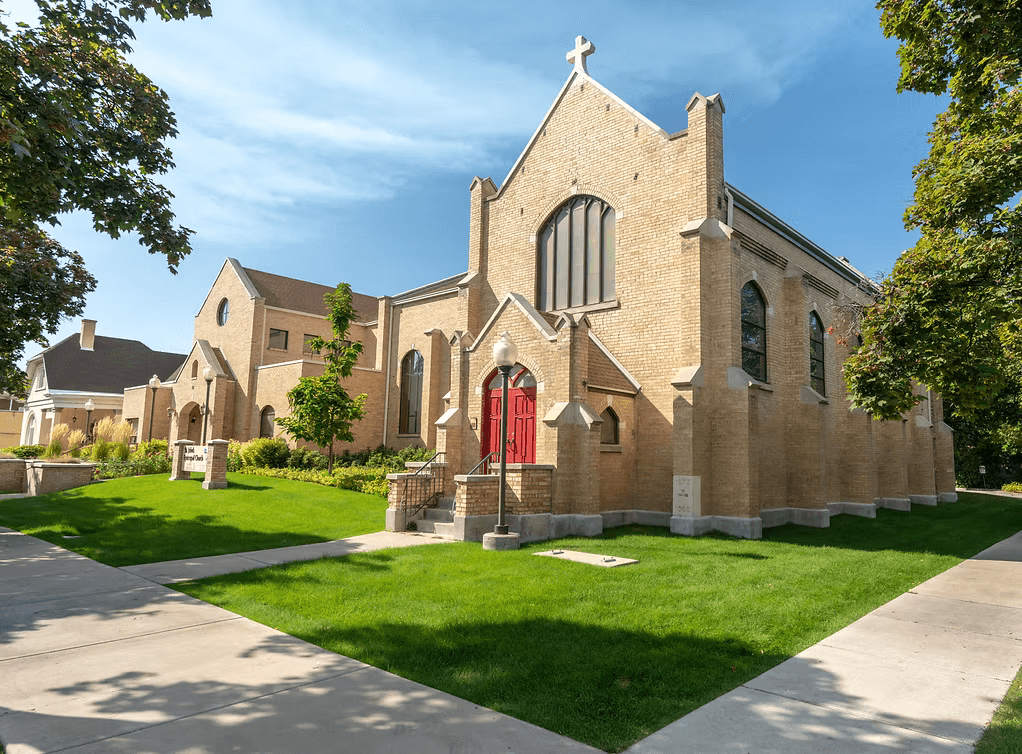What to Expect on Your First Sunday at an Episcopal Church

Walking into a new church for the first time can feel both exciting and nerve-wracking. Will I know what to do? What should I wear? Where should I sit? These are completely normal concerns, and we want you to feel as comfortable and welcome as possible when you visit an Episcopal church. Here's a friendly guide to help you know what to expect on your first Sunday.
Before You Arrive
What Should I Wear?
Come as you are! While some people dress up for church, others wear jeans and casual clothes. You'll see everything from suits and dresses to khakis and polo shirts. The most important thing is that you're here—not what you're wearing. God cares about your heart, not your outfit.
When Should I Arrive?
Most people find it helpful to arrive about 10-15 minutes before the service begins. This gives you time to find parking, get oriented, pick up a bulletin, and settle in without feeling rushed. Check your specific church's service times, as these vary from parish to parish.
Where Do I Park?
Most Episcopal churches have parking lots or designated areas, though urban churches may rely on street parking. Don't worry about finding the "perfect" spot—just park wherever is convenient and safe.
When You Walk In
The Welcome
As you enter, you'll likely be greeted by one of our ushers or greeters. These friendly volunteers will hand you a bulletin (also called a service leaflet or program) that will be your guide through the entire service. Don't hesitate to let them know you're visiting—they're happy to help you find your way around.
Finding a Seat
You can sit anywhere you'd like! Most Episcopal churches have traditional wooden pews or rows of chairs, and every seat typically has a good view. Many first-time visitors choose to sit toward the middle or back so they can observe and follow along with what others are doing. Those who are shorter often prefer sitting toward the front for a better view. Families with small children sometimes sit near the side aisles for easier access if needed.
What You'll Find in Your Pew
In the pew rack in front of you, you'll find:
- Books of Common Prayer (BCP) - These contain prayers and responses used during the service. Though you'll get a bulletin so that you don't need to look through this book unless you'd like to.
- Hymnals - "The Hymnal 1982" contains the music we'll sing.
As the Service Begins
The Prelude
A few minutes before the service officially begins, you'll hear music called the prelude. This isn't background music—it's the beginning of our worship time together. You might notice people becoming quieter and more reflective. Use this time to settle in, take a deep breath, and prepare your heart for worship.
The Procession
Most Sundays, our service begins with everyone standing and singing a hymn while our liturgical ministers process down the aisle. You'll see people carrying a cross, candles, and other worship items.
Following Along
Your bulletin is designed to guide you through everything. It will tell you:
- When to stand, sit, or (optionally) kneel
- Which hymn numbers to find in the hymnal
- When there are spoken responses and what to say
During the Service
Don't Worry About Getting Everything "Right"
If you miss a response, can't find the right page, or feel lost, that's completely okay. Even longtime members sometimes get turned around! Just do your best to follow along, and don't stress about perfect participation.
The Readings
We'll sit together to hear readings from the Bible. These come from our lectionary—a three-year cycle that takes us through much of scripture. You don't need to follow along in a Bible; just listen and let the words speak to you.
The Gospel Reading
When we read from the Gospels (the stories of Jesus' life), everyone stands and we sing a hymn beforehand. The Gospel book is brought into the congregation, and people turn to face it. This special treatment reflects how central Jesus' story is to our faith.
The Sermon
After the Gospel, our priest will preach a sermon connecting the day's readings to our lives today. Sermons usually last about 10-15 minutes.
The Prayers
We'll stand together to say the Nicene Creed (an ancient statement of faith) and then pray the Prayers of the People. During these prayers, an acolyte/subdeacon will lead various petitions, and we'll all respond together. Your bulletin will show you the responses.
The Peace
This might feel like the most unfamiliar part of the service! At some point, the priest will say "The peace of the Lord be always with you," and we'll respond "And also with you." Then we turn to the people around us and share the peace by saying "Peace be with you" and shaking hands or offering a brief hug.
This isn't just being friendly (though it's that too)—it's a ritual way of ensuring we're in right relationship with each other before we share communion together. You can participate as much or as little as feels comfortable.
Communion
Who Can Receive?
The official policy of the Episcopal Church is that all baptized Christians are welcome to receive communion. Many Episcopal churches extend this invitation even more broadly to anyone who is seeking God. If you're not sure, you're welcome to come forward anyway, or you can ask an usher or greeter about your specific church's practice.
If You Don't Want to Receive Communion
That's perfectly fine! You can remain in your seat during communion, or you can come forward and cross your arms over your chest. If you do this, the priest will offer you a blessing instead of communion.
How Communion Works
When it's time, people generally come forward row by row (ushers often help guide this process). You'll either stand or kneel at the altar rail. The priest will place a piece of bread in your hands, and then someone will bring you a cup of wine.
You have several options:
- Eat the bread immediately, then take a sip from the cup
- Hold the bread and let the person with the cup dip it in the wine for you
- Receive only the bread or only the wine (either one is considered complete communion)
Don't worry about doing it "wrong"—the ministers will gently guide you if needed.
After the Service
The Ending
After communion, we'll stand for a closing prayer and blessing. We usually sing a final hymn while the ministers process out, and then we're dismissed to "go in peace to love and serve the Lord."
The Postlude
There's often instrumental music played after the service ends. You're welcome to stay and listen or to get up and start mingling with others.
Fellowship Time
Many Episcopal churches have a coffee hour or fellowship time after the service. This is a wonderful opportunity to introduce yourself, ask questions, and get to know people. The location and format vary by church, but it's typically a relaxed, welcoming atmosphere where everyone is invited to participate.
Meeting People
Don't be surprised if people introduce themselves and ask about your visit. Episcopalians are generally friendly folks who are genuinely interested in getting to know you. The priest will often be available after the service and would love to meet you—they might greet people at the door or mingle during fellowship time.
Special Considerations
Children
Episcopal churches generally welcome children in worship! Many churches provide nursery care for infants and toddlers, and some offer children's chapel or Sunday school programs. Kids are also welcome to stay in the main service with their families. Ask about your specific church's offerings for children and families.
Accessibility
Most Episcopal churches strive to be accessible, though older buildings may have limitations. Don't hesitate to let an usher know if you need assistance.
Restrooms
Ask an usher or greeter for directions to restrooms if you need them during or after the service.
What Happens Next?
There's no pressure to make any commitments after your visit. Some people visit once, others come back regularly, and still others eventually decide to make a particular church their home. Churches are happy to have you at whatever level feels right to you.
Ask about what opportunities are available at the church you're visiting.
A Final Word
Remember, everyone was new once. The person sitting next to you who seems to know everything by heart was once in your shoes, trying to follow along and figure things out. We're all on a journey of faith together, and we're honored that you're considering joining us for part of that journey.
Episcopal worship can feel formal at first, but underneath the liturgy is a warm community of people who are trying to follow Jesus together. We believe that God meets us in our worship, in our community, and in our service to the world.
Most importantly, know that you belong here. Whether this is your first time in any church or you're coming from another tradition, whether you're certain about your faith or full of questions, whether you're looking for a church home or just curious about what happens in Episcopal worship—you are welcome.
We hope your first Sunday at an Episcopal church is a meaningful and comfortable experience.
